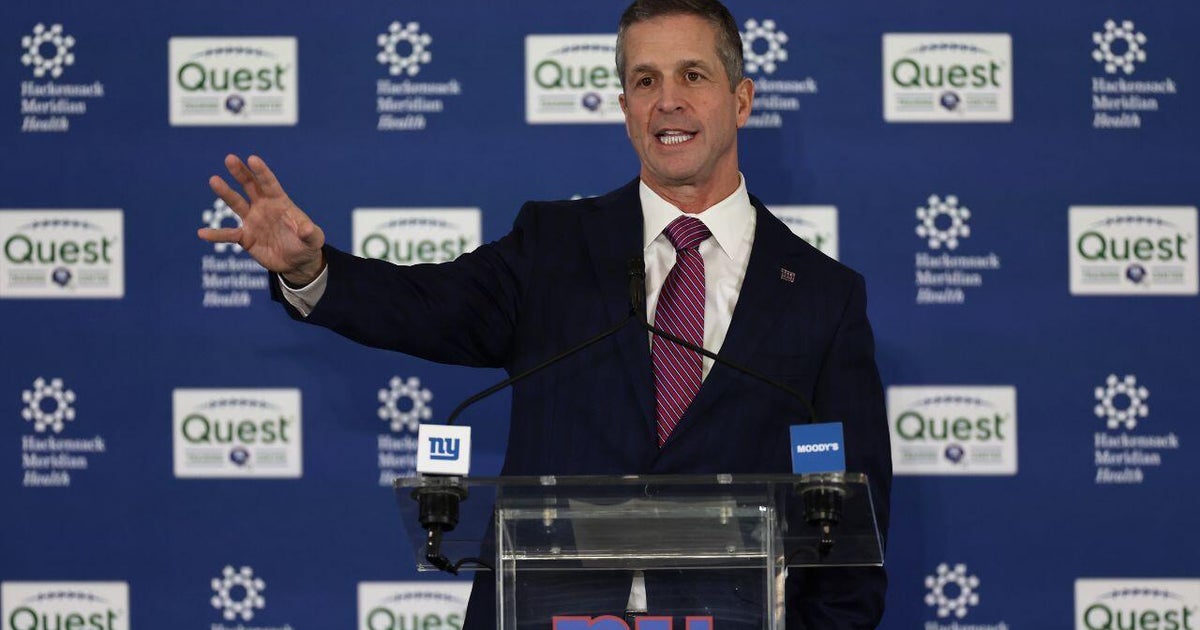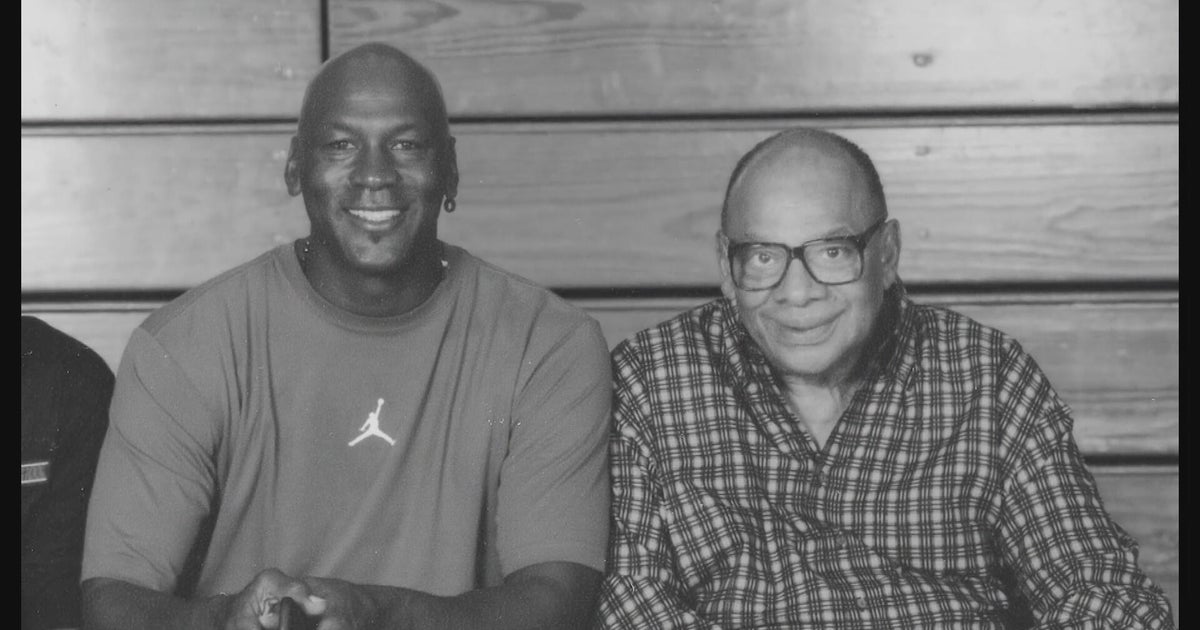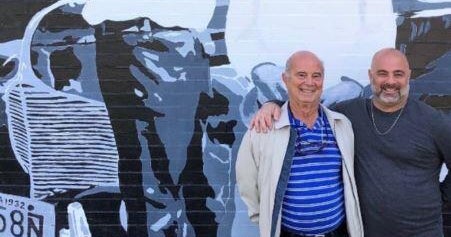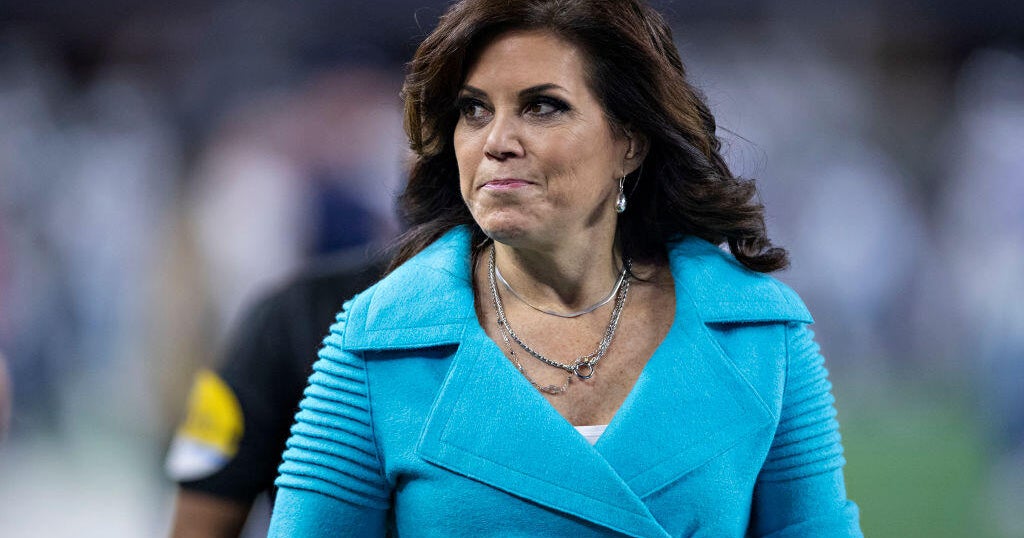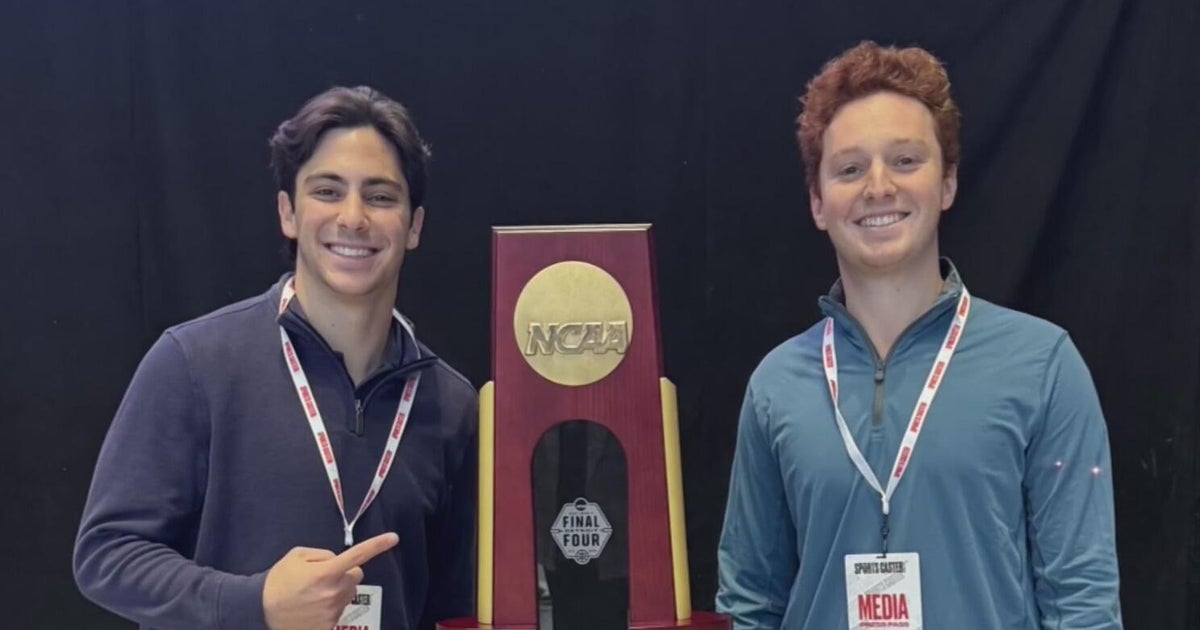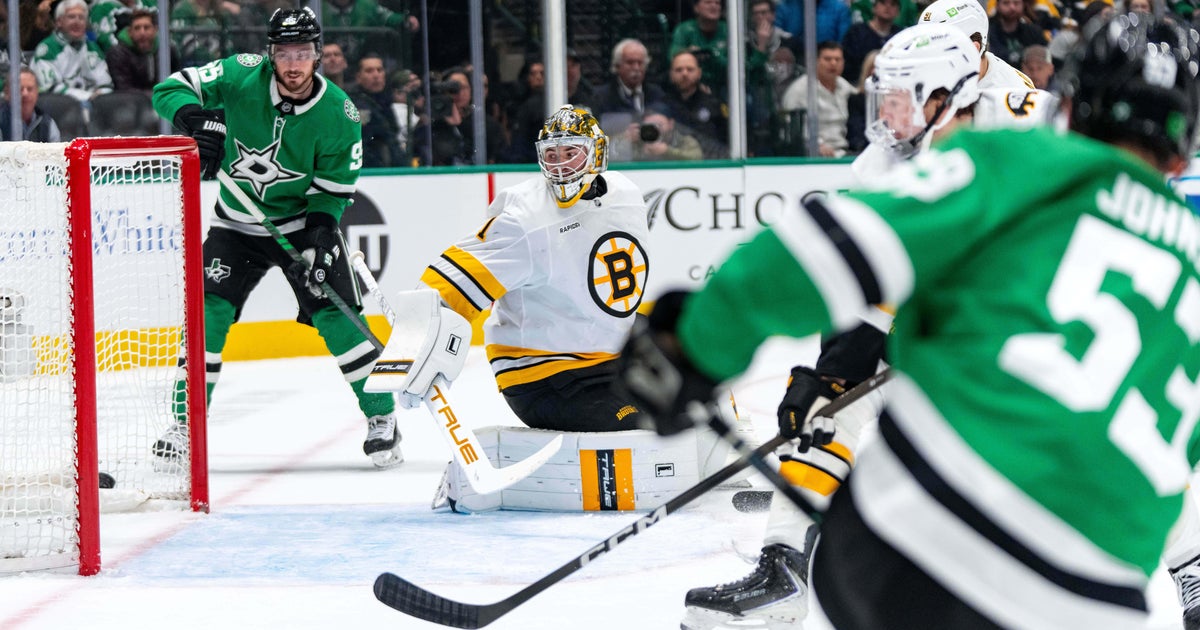Former New York Giant, Legendary Broadcaster Pat Summerall Dead At 82
DALLAS (CBSNewYork/AP) — A football legend has passed.
Pat Summerall, the deep-voiced NFL player-turned-broadcaster who spent half of his four decades calling sports famously paired with John Madden, died Tuesday. He was 82.
Susie Wiles, Summerall's daughter, said her father died in Dallas.
"He was an extraordinary man and a wonderful father," Wiles said. "I know he will be greatly missed."
Summerall was part of network television broadcasts for 16 Super Bowls. His last championship game was for Fox on Feb. 3, 2002, also his last game with longtime partner Madden. The popular duo worked together for 21 years, moving to Fox in 1994 after years as the lead team for CBS.
At the end of their final broadcast together, Madden described Summerall as "a treasure" and the "spirit of the National Football League" in a tribute to the partner that complemented the former coach so well.
"You are what the NFL is all about, what pro football is all about, and more important, what a man is all about and what a gentleman is all about," Madden said.
As former teammate and broadcaster Frank Gifford put it in an accompanying video tribute: "America is very comfortable with Pat Summerall."
"There is no one more closely associated with the great legacy and tradition of CBS Sports than Pat Summerall," Sean McManus, Chairman, CBS Sports said in a statement. "His voice was synonymous with big events whether it was NFL football and the Super Bowl, the Masters or U.S. Open Tennis."
Summerall played 10 NFL seasons (1952-61) with the Chicago Cardinals and New York Giants. In his second career, he became a voice so familiar to several generations of sports fans, not only those of the NFL.
He started doing NFL games for CBS in 1964, and became a play-by-play guy 10 years later. He was also part of CBS's coverage of the PGA Tour, including the Masters from 1968-94, and the U.S. Open tennis tournament.
When CBS lost its NFL deal after the 1993 season, Summerall switched to Fox to keep calling NFL games with Madden. He had hoped to keep working with CBS for other events like the Masters, but network executives saw it otherwise. At the time, CBS Sports anchor Jim Nantz said he was "very saddened" that Summerall didn't get to leave CBS under his own terms.
"He is CBS Sports. I always thought he could work here until he was 75 or 80 years old," Nantz told The Philadelphia Daily News then. "He's been a much larger influence on my career than I think he realizes. There will be a piece of Pat Summerall on the air as long as I do golf for this network."
A recovering alcoholic, Summerall had a liver transplant in April 2004. The lifesaving surgery was necessary even after 12 years of sobriety.
After an intervention involving, among others, former NFL Commissioner Pete Rozelle, former CBS Sports President Peter Lund and former PGA Tour Commissioner Deane Beaman, Summerall checked into the Betty Ford Clinic in April 1992.
"I had no intention of quitting, I was having too good a time," Summerall said in a 2000 Associated Press story. "The prescribed stay at Betty Ford is 28 days. They kept me 33 because I was so angry at the people who did the intervention, the first five days didn't do me any good."
Summerall received the liver of a 13-year-old junior high football player from Arkansas who died unexpectedly from an aneurysm. Summerall had an emotional meeting with the teenager's family the following year.
Summerall often shared his testimony with Christian groups and told his story when speaking before other organizations. In his 2006 book, "Summerall: On and Off The Air," he frankly discussed his personal struggles and professional successes.
Long before broadcasting Super Bowl games, 16 for television and 10 more for radio — in fact, before there was even a Super Bowl — Summerall played a role in what is known in football circles as "The Greatest Game Ever Played," the 1958 NFL championship. The Giants lost to the Baltimore Colts 23-17 in the NFL's first-ever overtime game.
"Pat was a friend of nearly 40 years," CBS Sports' Verne Lundquist said in a statement. "He was a master of restraint in his commentary, an example for all of us. He was also one of the great storytellers who ever spoke into a microphone."
Born George Allen Summerall on May 10, 1930 in Lake City, Fla., he was an All-State prep football and basketball player there, and lettered in baseball and tennis. He played college football at Arkansas before going to the NFL.
After breaking his arm in the preseason as a rookie for Detroit, Summerall played five years for the Chicago Cardinals before four seasons with the Giants. While he was also a defensive back, Summerall was primarily a kicker, making 100 field goals and 256 of 265 extra points in his career.
When asked about his fondest NFL memories during a May 2009 interview with the AP, Summerall said there were things that stood out as a player and broadcaster.
"You always remember the days as a player. I was in four championship games before there was a Super Bowl, so I remember those very well," he said. "Broadcasting, I remember the last (Super Bowl) I did. Of course, I remember that. I remember the first one most vividly than any of the rest."
Summerall was part of the NBC and CBS simulcast of the inaugural Super Bowl in Los Angeles on Jan. 15, 1967. After working the first half in the broadcast booth, he switched places with Gifford at halftime and was a sideline reporter during the second half.
"To look at the Coliseum that day and see that there were like 40,000 empty seats and the most expensive ticket was $12, it's incredible to realize what was going on and what it's grown to over the years," he said during the 2009 AP interview. "It's sort of staggering to me."
Summerall, who spent his final years in the Dallas area, living in Southlake, was a member of the North Texas Super Bowl host committee for the game played there in February 2011 in the $1.1 billion Cowboys Stadium that opened in 2009.
"It's a little bit different in that, it's in my neighborhood, it's in my home," Summerall said in advance of that Super Bowl in which Green Bay defeated Pittsburgh. "It's quite an honor just to be part of it."
Summerall became a play-by-play announcer in 1974, and it was strictly by accident. He was working with Jack Buck, and CBS boss Bob Wussler thought the two commentators sounded too much alike. Summerall told Wussler that if a change was going to be made that he'd like to do play-by-play, and the following Sunday that's what Summerall was doing.
His final play-by-play words beside Madden highlighted Summerall's succinctness when calling the game-ending field goal.
"It's right down the pipe. Adam Vinatieri. No time on the clock. And the Patriots have won Super Bowl XXXVI. Unbelievable," Summerall said.
Sparse, exciting, perfect. A flawless summation without distracting from the reaction viewers could see on the screen.
After his final game with Madden, Summerall remained a full-time broadcaster for Fox one more season, doing primarily Dallas Cowboys games during the 2002 season. He decided to step down the following year when he realized he would spend most of the season away from home.
Summerall did a handful of NFL games for Fox and ESPN the next few seasons. He did play-by-play for Fox's broadcast of the Cotton Bowl's games from 2007-10, then for the bowl's 75th anniversary in January 2011 conducted interviews as part of the pregame show and game broadcast. He also had voiceovers that were part of Masters broadcasts for CBS and game broadcasts on NFL Network.
"Pat Summerall was a hero to me," Nantz said in a statement. "I treasured the gift of friendship that I had with him. I was his understudy for 10 years. He could not have been more generous or kind to a young broadcaster. He was a giant and one of the iconic figures in the history of the CBS Television Network."
Funeral arrangements were incomplete.
What will Summerall's lasting legacy be? Leave your memories and thoughts in the comments section below...
(TM and © Copyright 2013 CBS Radio Inc. and its relevant subsidiaries. CBS RADIO and EYE Logo TM and Copyright 2013 CBS Broadcasting Inc. Used under license. All Rights Reserved. This material may not be published, broadcast, rewritten, or redistributed. The Associated Press contributed to this report.)
